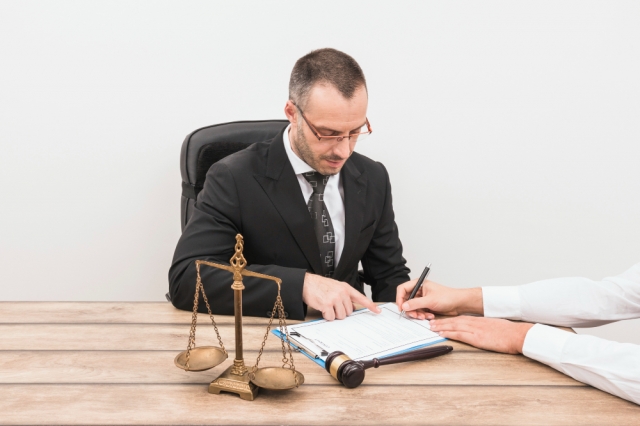When someone faces criminal charges in Oakland, the legal process can quickly become overwhelming. Understanding what lies ahead, what rights a defendant has, and how a defense attorney can help can make a significant difference in the outcome of a case. Here's a guide to navigating the legal process in Oakland, designed to demystify each step and highlight the importance of having the right defense.
Understanding Arrest and Charges
The legal journey usually begins with an arrest or the filing of charges, where an Oakland criminal defense attorney can provide essential guidance. In Oakland, as in other cities, law enforcement must have probable cause to make an arrest. Probable cause means there's a reasonable basis to believe someone committed a crime. However, an arrest alone does not imply guilt, and the accused is presumed innocent until proven guilty in court.
Once arrested, the individual may be taken into custody and booked. During booking, law enforcement records, personal details, fingerprints, and photographs. It's essential at this stage for defendants to understand their rights, including the right to remain silent and the right to an attorney. These rights, often referred to as Miranda rights, are critical in protecting individuals from self-incrimination.
The Role of Bail in Oakland's Legal Process
After booking, the accused may have the chance to post bail, a sum of money ensuring their court appearance. Bail bonds vary based on the offense's severity, criminal history, and flight risk. Oakland courts set bail guidelines, but judges can adjust amounts based on case specifics.
In some cases, a defense attorney may request a bail reduction. If the judge finds the accused poses little risk, they might allow release on personal recognizance, requiring no money but a commitment to appear in court.
How a Criminal Defense Attorney Prepares for Defense
Once charges are filed, a defense attorney takes steps to analyze the case and build a strategy. This phase, known as discovery, allows the defense to examine evidence gathered by the prosecution. Evidence can include witness statements, surveillance footage, forensic reports, and any statements the accused might have made during questioning. A thorough examination of this evidence is crucial because it helps the defense attorney find weaknesses or inconsistencies in the prosecution's case.
Attorneys also investigate by gathering additional evidence, interviewing witnesses, and consulting with experts when necessary. For example, if the case involves scientific evidence, a defense attorney might work with forensic experts to challenge the validity of the prosecution's findings.
What Is a Plea Bargain, and Is It Worth Considering?
In many cases, prosecutors may offer a plea bargain, which allows the defendant to plead guilty to a lesser charge in exchange for a reduced sentence. For some individuals, accepting a plea deal is a practical choice, especially if the evidence against them is strong and the potential sentence for the original charge is severe.
Accepting a plea deal, however, is a significant choice. A knowledgeable defense attorney will assess the strengths and weaknesses of the case and offer guidance on whether a plea deal is in the client's best interest. It's also important for defendants to understand that once they plead guilty, the plea is often irreversible. Thus, having an experienced attorney evaluate the offer is essential to making an informed choice.
The Trial Process in Oakland
If a plea agreement isn't reached, the case may go to trial, which follows a structured process starting with jury selection. Here, both defense and prosecution choose jurors who can assess the evidence impartially. Once the jury is selected, the trial begins with opening statements, where each side outlines their case.
The prosecution presents its evidence first, calling witnesses and introducing physical evidence. The defense can cross-examine each witness, aiming to challenge the prosecution's narrative. Once the prosecution rests, the defense presents its case. The defendant may choose to testify, though they're not required to do so—a decision made carefully with the attorney, balancing potential advantages and risks.
Jury Deliberation and Sentencing
After closing arguments, the jury deliberates. They review the evidence, discuss their interpretations, and strive to reach a unanimous decision. If they find the defendant guilty, the judge will schedule a sentencing hearing. During sentencing, the judge considers factors such as the severity of the crime, the defendant's criminal history, and any mitigating circumstances.
In certain cases, an attorney may argue for reduced sentencing by presenting evidence of the defendant's good character, family obligations, or other relevant factors. Sentencing outcomes can vary widely, ranging from probation and community service to prison time.
Can a Conviction Be Appealed?
Not all cases end with sentencing. If the defense believes that a legal error significantly impacted the case, they can file an appeal. Common grounds for appeal include procedural mistakes, improper jury instructions, or the admission of inadmissible evidence.
An appeal doesn't mean a new trial; rather, it's a request for a higher court to review the original trial for legal errors. If the appellate court finds a mistake, they may order a new trial, modify the sentence, or even overturn the conviction. The appeals process can be complex, and working with a defense attorney experienced in appellate law is highly beneficial.
The Importance of Having Skilled Legal Representation
Facing criminal charges is a life-altering experience, and the outcome of a case can have long-term consequences on one's personal and professional life. The legal system is complex, and having a defense attorney with deep knowledge of Oakland's courts and procedures can make a meaningful difference.
From securing a bail reduction to navigating plea deals and preparing for trial, an experienced defense attorney provides essential guidance. They not only understand the nuances of criminal law but also know the Oakland court system, which allows them to navigate the process more effectively. They work as advocates for the accused, aiming to ensure fair treatment and a just outcome.
Going through the criminal justice system can feel intimidating, especially without a clear understanding of each phase. Knowing what to expect—from arrest through trial or potential appeal—can help individuals feel more informed and prepared. For those facing charges, seeking the advice of an Oakland criminal defense attorney is a proactive step to safeguarding one's rights and securing a strong defense.
Navigating each stage with confidence is possible with the right legal support. The legal system may be intricate, but with proper guidance, defendants can understand their options, assert their rights, and pursue the most favorable outcome. In the face of legal challenges, having a skilled defense advocate provides not only expertise but also peace of mind.






